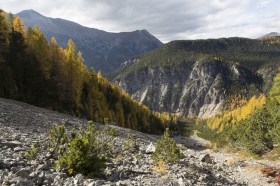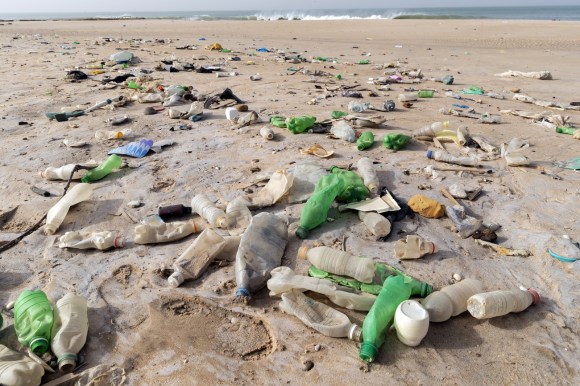Cuddles
Well-known member
This is great news imo 
Plastic-eating fungi discovered in Swiss Alps

Bacteria and fungi recently discovered in the Swiss Alps can digest biodegradable plastics at low temperatures. This ability, if upscaled to an industrial scale, will save money and energy during recycling, say scientists.
This content was published on May 10, 2023 May 10, 2023
3 minutes
Keystone-SDA/ts
Microbes found in the Graubünden Alps and the Arctic were able to digest the plastic types PUR (polyurethane) and PBAT/PLA, according to a studyExternal link published on Wednesday in the journal Frontiers in Microbiology.
PUR is found, for example, in household sponges, mattresses or trainers. PBAT/PLA in compostable plastic bags.
Finding, cultivating and bioengineering organisms that can digest plastic not only aids in the removal of pollution, but is now also big business. Several microorganisms that can do this have already been found, but when their enzymes that make this possible are applied at an industrial scale, they typically only work at temperatures above 30°C. The heating required means that industrial applications remain costly and aren’t carbon neutral.
But there is a possible solution: finding specialist cold-adapted microbes whose enzymes work at lower temperatures. Scientists from the Swiss Federal Institute for Forest, Snow and Landscape Research (WSL) knew where to look for such micro-organisms: at high altitudes in the Swiss Alps, or in the polar regions.
“We show that novel microbial taxa obtained from the ‘plastisphere’ of Alpine and arctic soils were able to break down biodegradable plastics at 15°C,” said lead author Joel Rüthi. “These organisms could help to reduce the costs and environmental burden of an enzymatic recycling process for plastic.”
To do this, Rüthi and his research colleagues buried plastic at the top of the Muot da Barba Peider in the Val Lavirun valley, in eastern Switzerland, and in the Arctic. Later, they took samples of the organisms growing there in the soil, finding 19 strains of bacteria and 15 strains of fungi.
More
More
Is your bikini fish-friendly? Research reveals how fabrics shed microplastics
This content was published on Aug 6, 2020 Aug 6, 2020 Scientists from two Swiss institutes have been investigating what happens when synthetic fabrics are washed.
Identifying enzymes
The researchers first allowed the microbes to grow as individual strain cultures in the laboratory at 15°C. They then used a series of tests to examine the individual strains for their ability to digest the plastic.“Some of these bacteria and fungi were previously unknown species,” Rüthi said. These included two species of fungi from the genera Neodevriesia and Lachnellula that gave the best results in the study. They were able to digest all the plastics tested apart from polyethylene, the most commonly produced plastic, primarily used for packaging.
More
More
Switzerland has plastic problem, say most Swiss
This content was published on Oct 31, 2022 Oct 31, 2022 Three-quarters of Swiss believe their country has a plastic problem, with a quarter seeing the problem as “massive”.
Since the WSL scientists tested only for digestion at 15°C, they don’t yet know the optimum temperature at which the enzymes of the successful strains work.
“The next big challenge will be to identify the plastic-degrading enzymes produced by the microbial strains and to optimise the process to obtain large amounts of proteins,” said Beat Frey, a senior scientist and group leader at WSL. “In addition,

Plastic-eating fungi discovered in Swiss Alps
Bacteria and fungi recently discovered in the Swiss Alps can digest biodegradable plastics at low temperatures.
 www.swissinfo.ch
www.swissinfo.ch


 .
.


